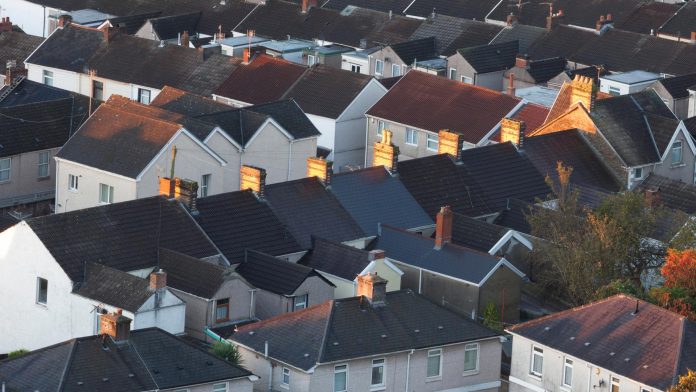Homes in England are less affordable and in worse condition than those in most other developed nations, a new report today shows.
Analysis from the Home Builders Federation – the representative body of the home building industry in England and Wales – reveals for the first time the full extent of the difficulties facing people in Britain trying to find somewhere to live that is decent and affordable.
Using data collated from the OECD, the European Union, and the UK Government, today’s report finds that England’s severe shortage of housing has made it the most difficult place in the developed world to find a home, with the lowest rate of available properties per member of the population of all OECD nations
England has the highest proportion of inadequate housing in Europe, with 15% of all existing homes not meeting the Decent Homes Standard and more substandard homes than Hungary, Poland and Lithuania
The UK has some of the oldest housing stock in the developed world with only 7% of British homes built after 2001, far less than other countries like Spain, with 18.5%, and Portugal, with 16%.
Boosting home ownership has been a key ambition for politicians, yet HBF’s research shows this is becoming increasingly unachievable for many as house prices continue to outstrip incomes.
Today’s report finds the UK has fallen behind our competitors on affordability, condition, and housing age.
Between 2004 and 2021 the UK’s rate of home ownership fell by six percentage points from 71% to 65%. Over the same period, levels of home ownership grew by nearly 10 percentage points in France and by 15 percentage points in the Netherlands.
Despite manifesto commitments and repeated promises to boost numbers, the policy environment has slowed the delivery of new homes.
The UK remains a long way off delivering the Government’s target of 300,000 new homes per year by the mid-2020s, with only 233,000 new homes completed in 2021-22 and delivery in the first half of 2023 down by 10%.
Analysis shows that record-breaking house building of 320,000 homes per year – nearly 100,000 more than current delivery – would be required for England to provide homes for its population in line with the benchmark for developed nations worldwide, the OECD.
Even just to reach the number of homes per thousand inhabitants of small European nations would require a significant increase in delivery. England would need to build 291,000 new homes every year until 2030 to reach the level of homes enjoyed by Belgium and 390,000 homes per year to be comparable to Denmark.
At a time when we desperately need to be building more homes, the impact of the faltering economy on people’s ability to buy and an increasingly anti-development approach to housing policy are resulting in supply falling sharply.
Planning consents, a strong indicator of what will be built in the coming years, fell by 19% during the first six months of 2023 as compared to the same period last year.”
Stewart Basely, Executive Chairman of the Home Builders Federation said:
“It is widely acknowledged that Britain’s housing is in crisis, but this research shows just how badly we are falling behind our international peers.
“Decades of housing undersupply has produced startling consequences for people up and down the country looking for a decent home.
“Home builders, want to be able to deliver new, high quality, energy efficient homes which will help solve our country’s housing crisis, and they expanded investment over the past decade. Sadly, developers are still too often hampered by a restrictive planning system, an anti-development mindset and short-term politics trumping the needs of communities
“The country is in dire need of more high quality and energy efficient new homes. With an election looming and manifestos being considered, today’s research should act as a wake-up call, demonstrating the urgent need to act now to prevent us falling even further behind.”







